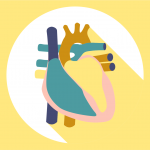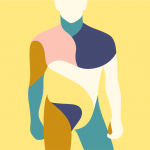Heart Failure
This in-depth guide on heart failure, a condition where the heart does not pump blood as well as it should, offers information on the latest research & insight from leading doctors in the field.
Understanding Heart Failure
Explore popular heart failure articles and topics
Inspiring Stories for Those Living With Heart Failure
Diagnosing Heart Failure
To diagnose a patient with heart failure, doctors will perform a series of tests. Not all of these tests are required for every patient. Possible tests include:
- Electrocardiogram (EKG), which measures the electrical activity traveling through your heart
- Generic blood tests
- Brain natriuretic peptide (BNP) or "N-terminal pro-BNP" (NT-proBNP), which are specific blood tests
- Chest X-ray
- Echocardiogram (also called an "echo"), which creates a picture of the heart as it beats
- Stress test
- Cardiac catheterization (also called "cardiac cath"), which determines if arteries are clogged
- Cardiac MRI or CT-scan
Categorizing Heart Failure
Before figuring out a treatment path, your doctor will need to determine what stage of heart failure you have. The possible stages are A, B, C and Dwith stage A being pre-disease and stage D being advanced disease with severe symptoms that may not respond to treatment.
Stage A
While performing physical activity is not an issue, patients in Stage A are considered at high risk for developing congestive heart failure. Stage A is considered pre-heart failure. It means you're at high risk of developing heart failure because you have a family history of heart failure, or you have one or more of the above mentioned medical conditions.
Stage B
Patients in Stage B heart failure have been diagnosed with some sort of structural heart disease like systolic left ventricular dysfunction, but have never had symptoms of heart failure. Most people with Stage B heart failure have an echocardiogram that shows an ejection fraction of 40% or less. (Ejection fractions means how much blood is pumped out of your heart each time it beats.) Stage B is considered pre-heart failure.
Stage C
Patients with a structural heart disease have Stage C heart failure. These patients currently have or previously had signs and symptoms of the condition such as feeling tired, coughing, wheezing, having shortness of breath or swollen limbs.
Stage D
This is the final stage of heart failure. Patients in Stage D are usually unresponsive to treatments and severe symptoms are present after mild activity, or even at rest.
- Part of treating heart failure has to do with managing risk factors.
- The goal is to keep patients from moving to a more serious stage of heart failure.
- There are several available medications and patients with more advanced disease may need surgery.
Treatment Options
- Part of treating heart failure has to do with managing risk factors.
- The goal is to keep patients from moving to a more serious stage of heart failure.
- There are several available medications and patients with more advanced disease may need surgery.
Dr. Aeshita Dwivedi explains how ARNIs can be used to treat heart failure.
Treating Heart Failure
Part of treating heart failure has to do with managing risk factors. This may include lifestyle adjustments such as:
- Quitting smoking
- Getting regular exercise
- Loosing weight
- Cutting out alcohol/drugs
- Treating high blood pressure
- Treating lipid disorders
- Controlling blood sugar (if a patient is diabetic)
The goal for treatment which could be a combination of medications and lifestyle adjustments is to keep patients from moving to a more serious stage of heart failure. The treatment approach will depend on the type of heart failure a person has and may, in part, be influenced by what caused the disease.
The medications that may be prescribed to patients with heart failure include the following.
- Angiotensin converting enzyme (ACE) inhibitors (to decrease pressure inside blood vessels)
- Angiotensin receptor blockers (to reduce the workload of the heart)
- Beta blockers (to reduce heart’s tendency to beat faster as well as workload)
- Aldosterone blockers (to block the effects of hormone aldosterone)
- Angiotensin receptor-neptrilysin inhibitors (ARNIs) (a new class of drugs that reduces excess fluid in the body and relaxes blood vessels)
For patients that have late stage disease, other medical interventions may be required to deal with symptoms and keep the disease from progressing any further. Those interventions include:
- Heart transplant
- Ventricular assist devices
- Continuous infusion of intravenous inotropic drugs
- Surgery (this may be possible if something like coronary artery disease is causing heart failure)
In some situations, a palliative care approach which aims to improve quality of life for the patient may be the best option. Hospice can be offered at the patient’s home or at a care facility. Hospice focuses on treating symptoms and relieving stress and pain rather than trying to cure the disease.

Please confirm you are a US based health care provider:
Yes, I am a health care Provider No, I am not a health care providerSign Up Now.
Take Control of Your Disease Journey.
Sign up now for expert patient guides, personalized treatment options, and cutting-edge insights that can help you push for the best care plan.




